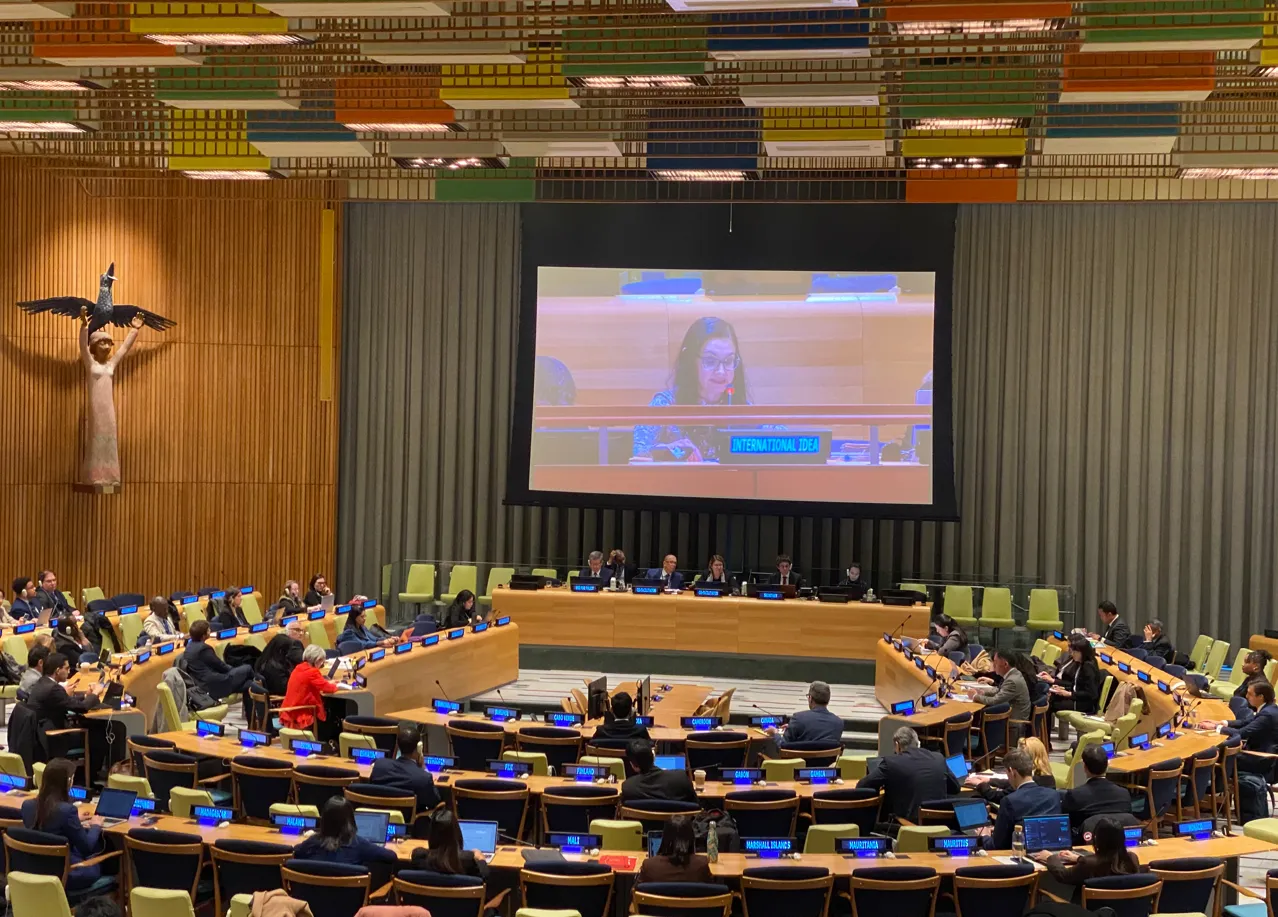Statement by International IDEA at the second informal consultation on the Summit of the Future

“Summit of the Future – Second Informal Consultation”
16 March 2023
New York, United Nations Headquarters
Statement by
Kevin Casas-Zamora
Secretary-General
International Institute for Democracy and Electoral Assistance (IDEA)
Excellencies,
International IDEA is an intergovernmental organization with 34 Member States working to advance democracy and improve electoral processes around the world since 1995. In recent years, we have built a significant body of knowledge and resources on risk management, resilience building, and crisis management in the field of democracy assistance, which provide relevant inputs into this thematic discussion on the Summit of the Future. We would like to thank the co-facilitators of Namibia and Germany, Member States of International IDEA, for the opportunity to provide inputs to this consultative process.
Based on a series of knowledge products, analyses and data produced by International IDEA, we would like to bring a few lessons and findings to this discussion on the ways in which the international community can better respond to crises that have a multidimensional and multi-sectoral impact in societies.
Lessons from recent global shocks show us that democratic processes and institutions are not immune to events that initially may seem unrelated and distant. The COVID-19 pandemic has had global impacts on democracy by derailing electoral processes, disrupting the functioning of democratic institutions, and interrupting critical international electoral assistance, democracy promotion efforts and international election observation. Yet, crises are also points when openness to innovation, learning and international collaboration have reached new heights.
During the almost three decades of International IDEA’s work to close gaps between knowledge and practice on many aspects of democracy, we have never experienced the thirst for knowledge we saw during the COVID-19 pandemic. Comparative experiences harvested by International IDEA almost in real-time helped political actors and election management bodies develop arrangements for increased operational effectiveness and enhanced participation, thereby improving trust in electoral processes. In most cases this also created the momentum for moving forward with long-overdue reforms.
The resources IDEA created on the experiences of countries around de world on COVID-19 and Elections, as well as the Democracy and Human Rights Tracker that we introduced to monitor the political impact of measures adopted by governments to deal with the pandemic, gained unprecedented attention from democracy practitioners worldwide. According to these resources, the most important lesson we can share with this body is about process: allowing for inclusiveness, participation and transparency during crisis decision-making processes is sometimes even more important than the substance of decisions made.
From this perspective, the United Nations should play a critical role in tackling global crises by including as many voices as possible in negotiation processes and ensuring that there is openness to learn and disseminate knowledge internally as well as between governments. The knowledge accrued should not stay there, though. There should be a deliberate effort to pass it on, through outreach efforts, to the global public and, in particular, marginalized groups. Hence, opening spaces for organizations such as International IDEA, to share comparative knowledge on how to protect democratic institutions, such as elections, during crises, is crucial to the success of global decision-making processes during critical emergencies.
In this regard, electoral processes and institutions should be recognized as critical infrastructure in democratic societies. Such recognition ensures that democratic institutions are protected from and during crisis-induced shocks, and, in doing so, it enables that a more open and inclusive crisis management style is protected as a result.
This is our key message: International IDEA considers democratic institutions, in general, and electoral processes, in particular, as vital infrastructures whose functioning is deeply affected by global shocks. They are as vital as any utility or public service. They deliver essential public good and services that allow societies to function during crises and recover from them. Therefore, we recommend that such infrastructures are explicitly protected by international norms and practices to deal with global shocks.
Thank you.